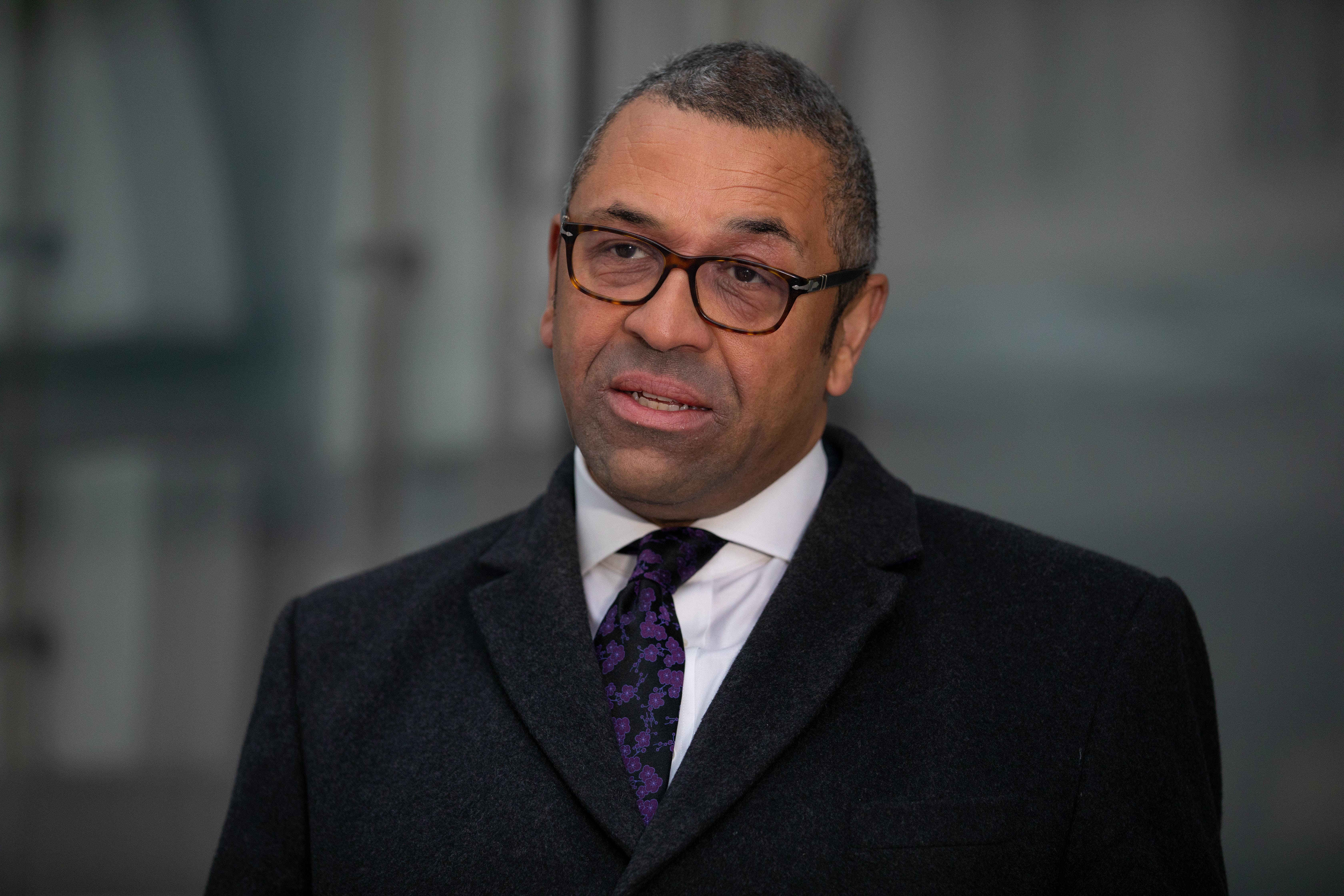Cleverly calls on Taliban to reverse ban on women aid workers in Afghanistan
Foreign Secretary James Cleverly said the ban on women working for aid charities would stop millions of people from getting support.

Your support helps us to tell the story
From reproductive rights to climate change to Big Tech, The Independent is on the ground when the story is developing. Whether it's investigating the financials of Elon Musk's pro-Trump PAC or producing our latest documentary, 'The A Word', which shines a light on the American women fighting for reproductive rights, we know how important it is to parse out the facts from the messaging.
At such a critical moment in US history, we need reporters on the ground. Your donation allows us to keep sending journalists to speak to both sides of the story.
The Independent is trusted by Americans across the entire political spectrum. And unlike many other quality news outlets, we choose not to lock Americans out of our reporting and analysis with paywalls. We believe quality journalism should be available to everyone, paid for by those who can afford it.
Your support makes all the difference.The Taliban are “trying to erase women from society in Afghanistan”, James Cleverly said, after international aid agencies were forced to pull out over a ban on female workers.
The Foreign Secretary urged the ruling Taliban regime to reverse the decision, warning that millions of Afghans would suffer as a result of the policy.
Meanwhile the United Nations’ top official in Kabul met with a Taliban minister to discuss the decision and its consequences for humanitarian relief efforts.
The ban on women working for non-governmental organisations (NGOs) has already prompted some major international aid agencies to suspend operations in Afghanistan.
The Foreign Secretary said: “The Taliban are trying to erase women from society in Afghanistan.
“Banning women from working for NGOs will prevent millions of Afghans from accessing life-saving aid and supplies. This will impact everyone.
“The Taliban must urgently reverse this decision.”
The measure – the latest restrictions on women’s rights under the Taliban – was announced on Saturday by Qari Din Mohammed Hanif, the economy minister, allegedly because some female NGO employees in Afghanistan were not wearing the Islamic headscarf, or hijab, correctly.
The UN mission in Afghanistan’s acting head, Ramiz Alakbarov, met with Mr Hanif on Monday and called for a reversal of the ban.
Save the Children, the International Rescue Committee, the Norwegian Refugee Council and Care had been providing essential services and support amid plummeting living conditions before the ban.
David Miliband, the former foreign secretary who leads the International Rescue Committee, said its female staff were “a lifeline for millions of clients and we cannot work without them”.
Christian Aid said it had paused work while it sought clarity over the announcement, and urged the Taliban to reverse the ban.
“Imposing a ban on female aid workers will only curtail our ability to help the growing number of people in need, and risks compounding the dire humanitarian crisis that women and girls face,” Ray Hasan from Christian Aid said.
Islamic Relief said its female staff were vital in providing essential healthcare, food and supporting widows and orphans.
It is temporarily suspending non-lifesaving activities in Afghanistan because of the ban, although its lifesaving healthcare will continue.